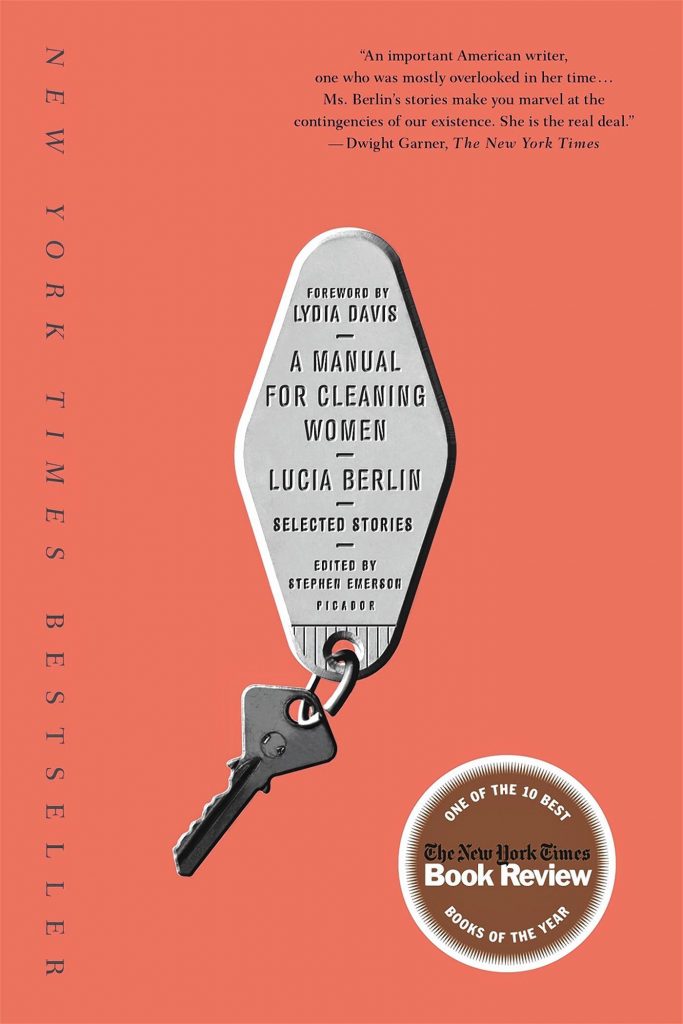A Manual for Cleaning Women: Selected Stories
By Lucia Berlin
(399 pages, short stories: fiction and memoir, 2015)
Lucia Berlin was truly the definition of a literary diamond in the rough. Born in Juneau, Alaska, in 1936, she lived a colorful and varied life right from the beginning. Her father was a mining engineer, and his work brought the family all over the country and into Mexico and South America. While various pieces of her work were published, Berlin only achieved wider notoriety after her death. A Manual for Cleaning Women was published in 2015 to considerable acclaim.
The book is comprised of many of Berlin’s short stories, which are either centered on events from her own life, or are heavily influenced by those experiences. Several of the people featured in the stories interconnect and resurface later in the book. Berlin gives powerful voice to her memories, living as a member of both the lower and upper classes, her lifelong struggle with alcoholism, and both the banality and the intensity of the many jobs she worked throughout her life. While reading this book, I got the sense that Berlin lived many lives between the years of 1936 and 2004, the year of her death. She lived in the dark trenches of both poverty and addiction, but only after experiencing a young adulthood of wealth and privilege in Chile as a result of her father’s career. She was at one time a “cleaning woman” for rich business owners (hence the title of the book), and then later worked as both an ER and a NICU nurse. She taught Spanish at an inner-city Catholic junior high school, and she went diving off a remote island in Mexico, where she met one of the great loves of her life. She married three times and had four sons. She cared for her sister, dying of cancer, when they reunited after a 20-year estrangement. While Berlin experienced so much in life and formed positive and negative connections with many different people, she tells her stories with a profound sense of loneliness, and of longing. She seems to have loved and lived to the fullest extent, but she also worried at times that she is missing out on so much more.
In “Homing,” the final story in the collection, Berlin observes crows flying and nesting in her front yard. She writes, “…what bothers me is that I only accidentally noticed them. What else have I missed? How many times in my life have I been, so to speak, on the back porch, not the front porch? What would have been said to me that I failed to hear? What love might there have been that I didn’t feel?”
There are many moments like this throughout that book that shock me with their universality; has there ever been a single person who did not have these same thoughts, feel these same emotions? Immense sadness and hopelessness bleed through Berlin’s writing, but she also at times cultivates a deep sense of hope and wonder as an astute observer of the world around her.
In my opinion, this book is meant to be read at a leisurely pace, meandering through the many richly-described landscapes of Berlin’s life. If you seek to read something raw and ugly, this is the book for you. But if you seek to read something breathlessly beautiful, this is also the book for you.
Visit Concord Public Library online at concordpubliclibrary.net.
Emily Kosowicz










